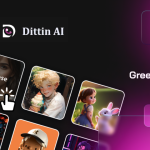
Jenna Ortega reveals she quit Twitter (now X) due to the proliferation of explicit, artificially generated images of herself as a teenager.
“I hate AI,” Ortega, the star known for her roles in “Wednesday” and Tim Burton’s upcoming “Beetlejuice Beetlejuice,” boldly discussed her decision in an interview with The New York Times.
“I mean, here’s the thing: AI could be used for incredible things. I think I saw something the other day where they were saying that artificial intelligence was able to detect breast cancer four years before it progressed. That’s beautiful. Let’s keep it to that. Did I like being 14 and making a Twitter account because I was supposed to and seeing dirty edited content of me as a child? No. It’s terrifying. It’s corrupt. It’s wrong.”
The Dark Side of AI and Social Media
Ortega’s first encounter with the dark side of social media dates back to when she was 12: when she received an unsolicited, explicit photo from a follower. This marked the beginning of a series of distressing experiences.
“I used to have that Twitter account, and I was told that, ‘Oh, you got to do it, you got to build your image,'” Ortega recounted. “I ended up deleting it about two, three years ago because the influx after the show had come out—these absurd images and photos, and I already was in a confused state that I just deleted it.”
In March, Facebook and Instagram even ran ads featuring a blurred, deepfake nude image of an underage Ortega to promote an AI app.
Popstar Taylor Swift was also targeted by this technology in January. Her name was momentarily rendered unsearchable on X after a surge of viral deepfakes of explicit photos of her circulated the app.
Despite the challenges, Ortega remains grateful for the lessons learned throughout her career. “There’s times that I regret it; there’s times that my parents regret it. Looking back, I wouldn’t change anything,” she said about starting her acting career as a kid.
Strengthening Regulations and Tech Company Responses
Recent progress in generative AI platforms has led to an increase in the creation of nonconsensual explicit images. Last year, The Internet Watch Foundation issued an urgent warning after learning that high school guys in the United States were creating deepfake nude photos of their female classmates.
While there are laws against deepfakes in several U.S. states, enforcement struggles as these images still surface in top search results of popular search engines.
“Microsoft has a long-standing commitment to advancing child safety and removing illegal and harmful content from our services,” a Microsoft spokesperson said in a statement. “We’ve removed this content and remain committed to strengthening our defenses and safeguarding our services from abusive content and conduct online.”
Google also addressed the issue, stating, “Google Search has strong protections to limit the reach of abhorrent content that depicts CSAM [child sexual abuse material] or exploits minors, and these systems are effective against synthetic CSAM imagery as well. We proactively detect, remove and report such content in Search, and have additional protections in place to filter and demote content that sexualizes minors.”



![Best AI Dating Apps for [current_date format=Y]: Top AI Chatbots & Romance Tools 4 AI dating apps](https://www.greenbot.com/wp-content/uploads/2025/03/AI-dating-apps-150x150.png)















